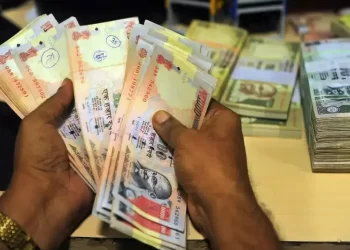The Power Division on Wednesday rejected reports claiming that the government might take a decision to end the net metering policy.
“There is no credibility in the news about ending the net metering policy circulating on various channels,” read the Power Division statement.
“No instructions have been received from the prime minister regarding the net metering policy,” it said.
Net metering policy likely to be revisited: Leghari
The Power Division added that the channels reporting such news should have taken its point of view “before spreading misleading news on various channels”.
Recent weeks have seen much confusion prevail with respect to the government’s existing solar net metering policy, which was enacted in 2015.
Back in April, media, citing its sources, reported that the government was mulling rationalisation of buyback rates of net metering electricity to Rs11 per unit from current rates of Rs21 per unit.
“The current trend of installation of net metering across the country has misbalanced the government’s plan to pay capacity charges from the consumers as rich segment is converting it to net metering,” the sources said then.
According to the sources, there is an impression in the Power Division that whatever advantage the consumers could get they have availed it, and now the damage has begun in the country’s power sector.
Understanding net metering, gross metering, and net billing: Pakistan needs sustainable practices
Net metering allows consumers to utilise the electricity generated by their in-house solar systems.
Any surplus electricity is sent to the grid, and consumers receive credits or monetary compensation at an agreed-upon rate (currently Rs19.32/kWh).
This system offers higher savings, simplified billing, and energy independence. However, it impacts utility revenue and comes with significant infrastructure costs.
The Power Division on Wednesday rejected reports claiming that the government might take a decision to end the net metering policy.
“There is no credibility in the news about ending the net metering policy circulating on various channels,” read the Power Division statement.
“No instructions have been received from the prime minister regarding the net metering policy,” it said.
Net metering policy likely to be revisited: Leghari
The Power Division added that the channels reporting such news should have taken its point of view “before spreading misleading news on various channels”.
Recent weeks have seen much confusion prevail with respect to the government’s existing solar net metering policy, which was enacted in 2015.
Back in April, media, citing its sources, reported that the government was mulling rationalisation of buyback rates of net metering electricity to Rs11 per unit from current rates of Rs21 per unit.
“The current trend of installation of net metering across the country has misbalanced the government’s plan to pay capacity charges from the consumers as rich segment is converting it to net metering,” the sources said then.
According to the sources, there is an impression in the Power Division that whatever advantage the consumers could get they have availed it, and now the damage has begun in the country’s power sector.
Understanding net metering, gross metering, and net billing: Pakistan needs sustainable practices
Net metering allows consumers to utilise the electricity generated by their in-house solar systems.
Any surplus electricity is sent to the grid, and consumers receive credits or monetary compensation at an agreed-upon rate (currently Rs19.32/kWh).
This system offers higher savings, simplified billing, and energy independence. However, it impacts utility revenue and comes with significant infrastructure costs.









